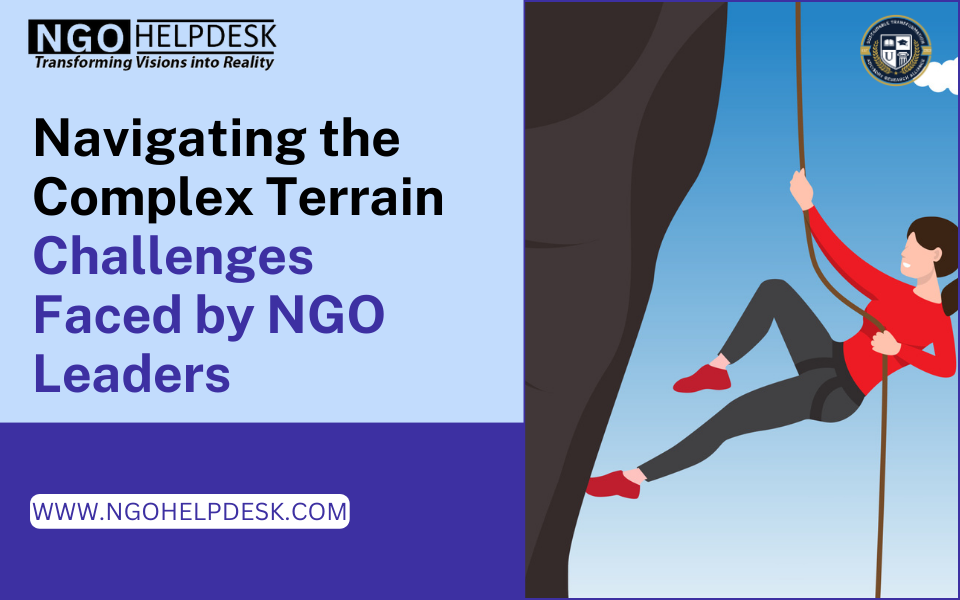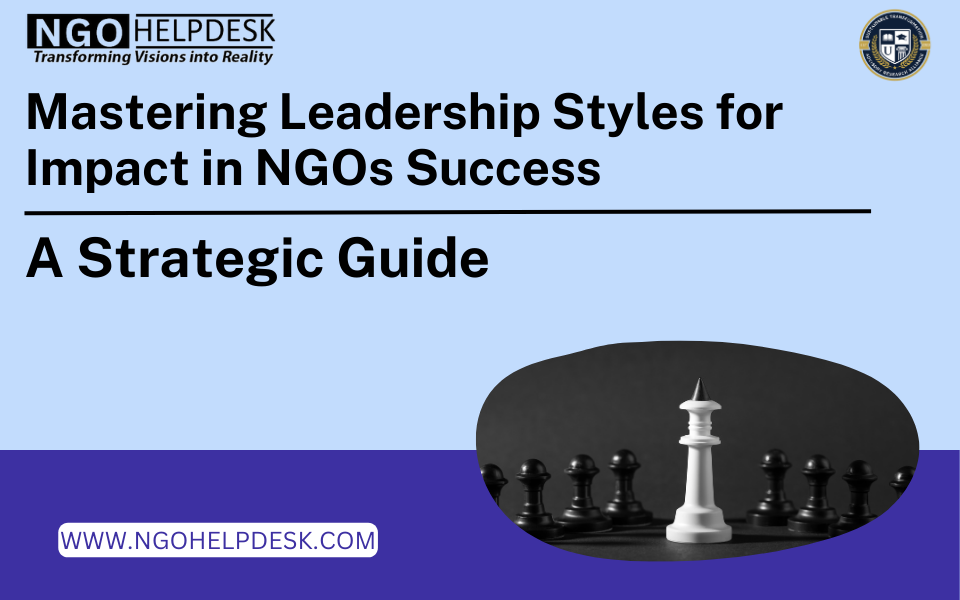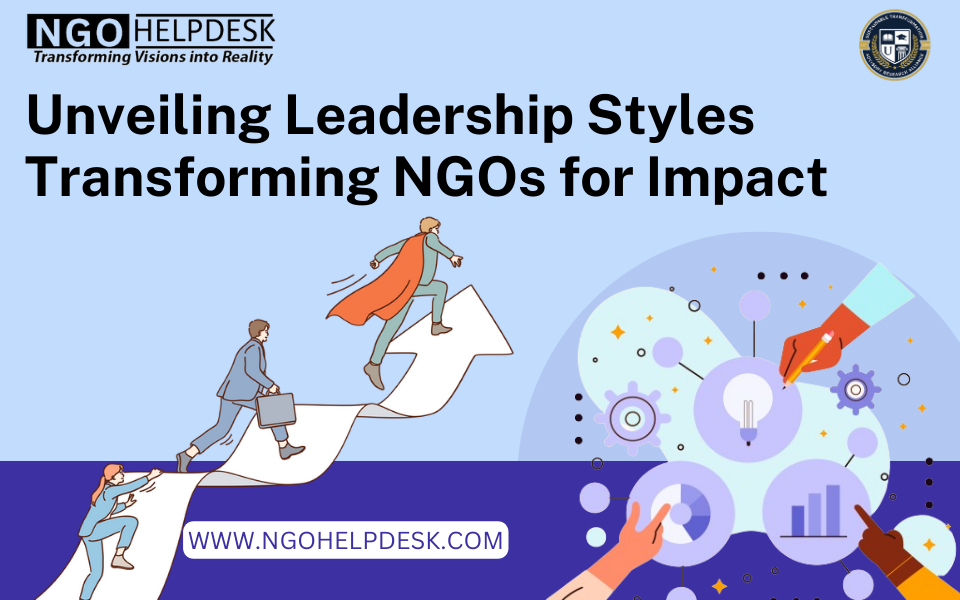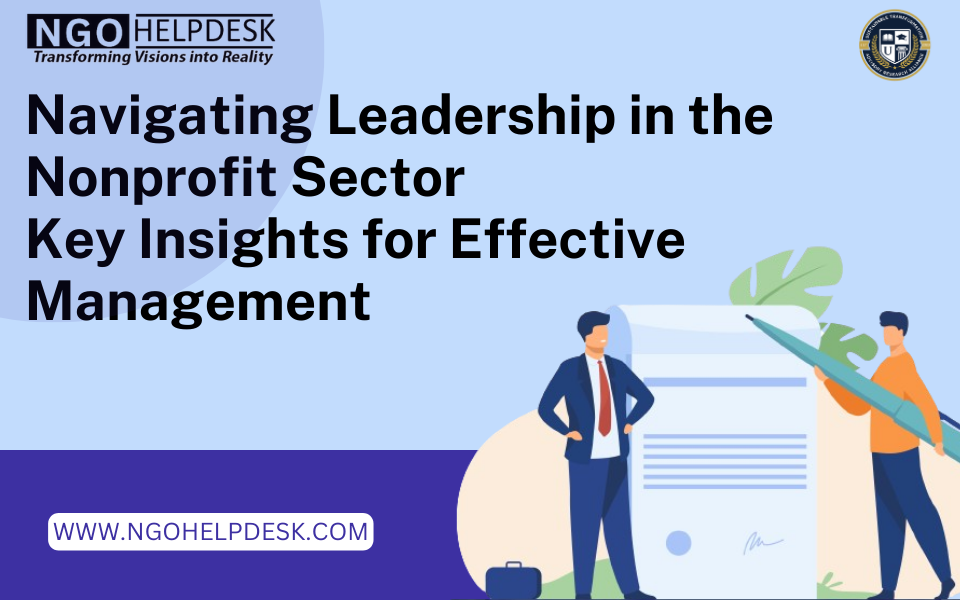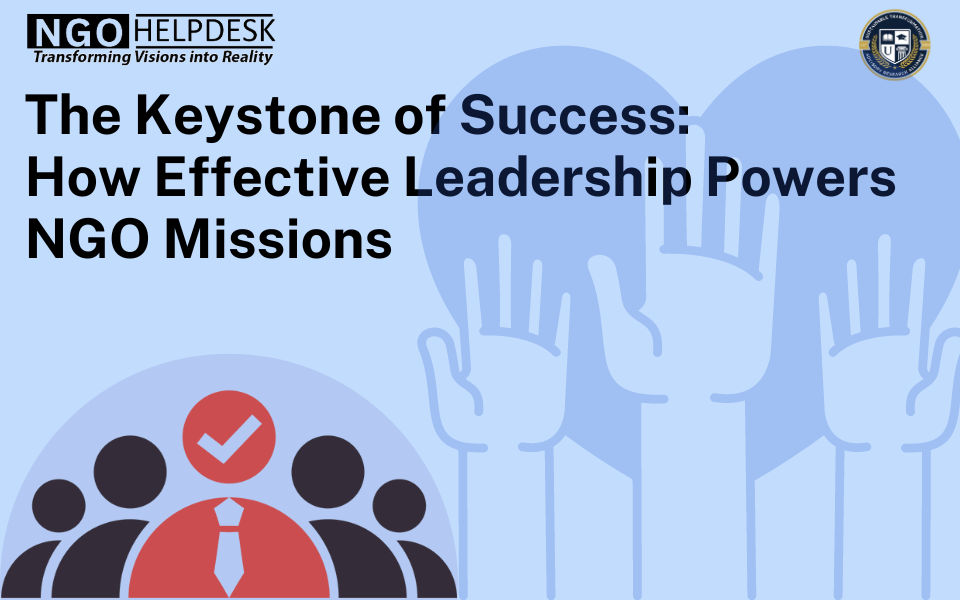
Introduction:
In the heart of every non-governmental organization (NGO) lies a mission aiming to instigate positive change. Whether it’s advocating for environmental conservation, providing relief in humanitarian crises, or championing social justice, the linchpin to actualizing these noble ambitions is effective leadership. This blog post explores the pivotal role of leadership in navigating NGOs towards their mission fulfillment, highlighting why adept leadership is not just beneficial but essential in the nonprofit sector.
The Vital Role of Leadership in NGOs:
Leadership within NGOs transcends the conventional realms of management; it’s about inspiring action, fostering innovation, and driving a collective effort towards a common goal. Effective leaders possess the unique ability to transform vision into reality, making leadership prowess indispensable in the journey toward achieving an NGO’s mission.
Key Components of Effective NGO Leadership:
- Visionary Thinking: The ability to set a clear, compelling direction that aligns with the NGO’s mission and inspires stakeholders.
- Strategic Planning: Developing actionable strategies that navigate the NGO closer to its goals amidst a landscape of challenges and opportunities.
- Empathy and Inclusivity: Understanding the needs of the communities served and fostering an environment where diverse voices are heard and valued.
- Adaptability and Resilience: The capacity to pivot strategies in response to changing external dynamics without losing sight of the mission.
Why Effective Leadership is Crucial for NGO Success:
- Mission Alignment and Achievement: Leaders ensure that every organizational activity and decision propels the NGO towards its overarching mission, optimizing impact and resource allocation.
- Stakeholder Engagement: Through persuasive communication and ethical governance, leaders build trust and secure the commitment of donors, volunteers, and the communities they serve.
- Sustainability and Growth: Adept leadership is key to navigating financial challenges, securing funding, and ensuring the long-term viability and growth of the NGO.
- Building a Motivated Team: Inspirational leaders are pivotal in attracting, retaining, and motivating staff and volunteers, creating a unified force working passionately towards the mission.
Strategies for Cultivating Effective Leadership:
- Continuous Learning: Commit to ongoing personal and professional development to stay abreast of best practices in NGO management and leadership.
- Fostering Collaboration: Encourage a culture of teamwork, leveraging the diverse skills and perspectives within the organization for greater innovation.
- Ethical Leadership: Model integrity and transparency in all actions, reinforcing the NGO’s values and building public trust.
- Empowering Others: Develop leadership qualities within the team, delegating responsibilities that nurture skills and build leadership capacity across the organization.
Conclusion:
The importance of effective leadership in achieving an NGO’s mission cannot be overstated. It is the force that guides the NGO through turbulent waters, ensuring that it remains true to its purpose while adapting to the ever-changing global landscape. As we reflect on the transformative power of leadership, it becomes clear that investing in leadership development is not just an option but a necessity for NGOs aiming to make a lasting impact. Leaders are not just at the helm of the organization; they are the heart, driving passion, purpose, and perseverance in the pursuit of a better world.

